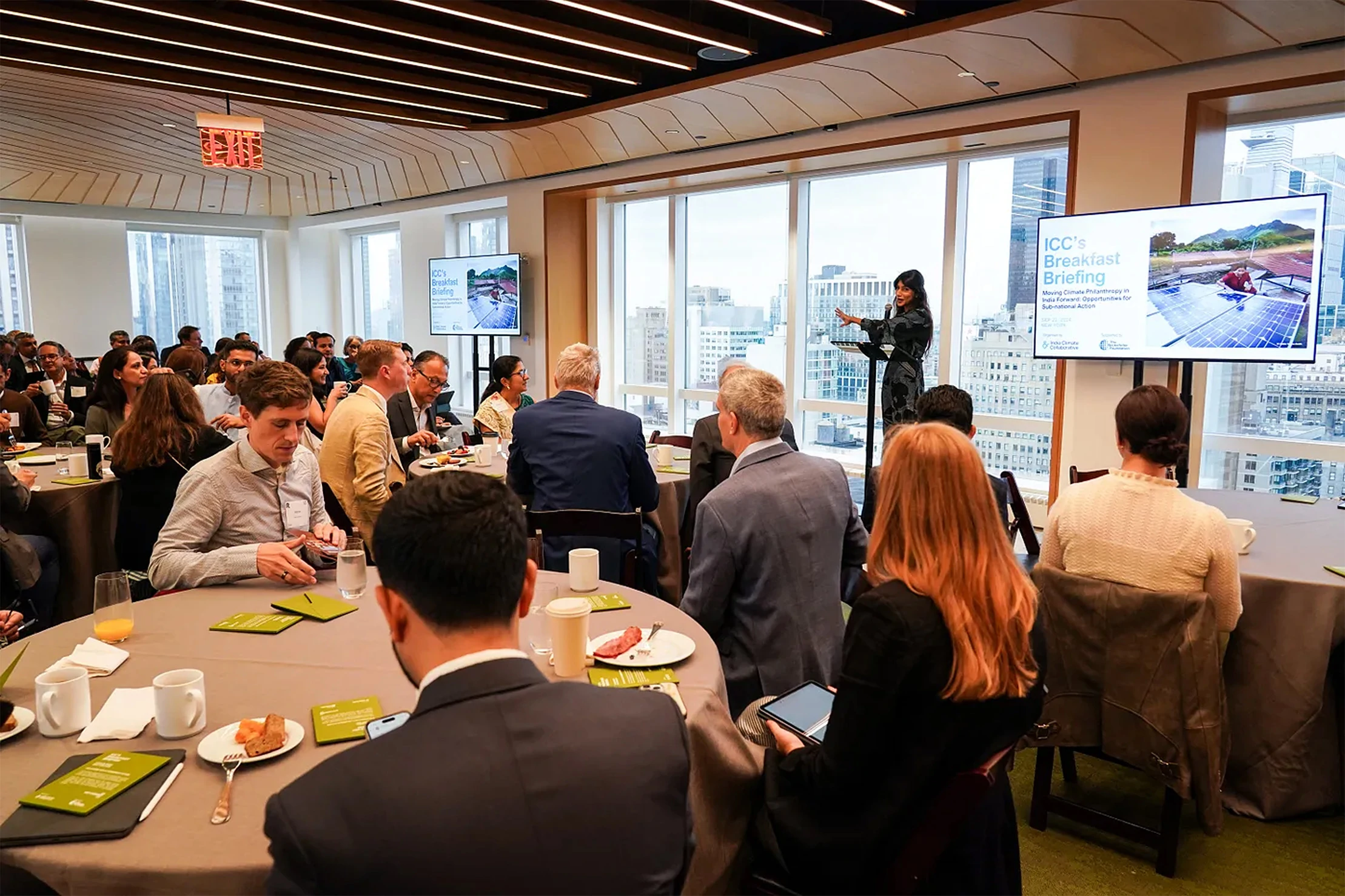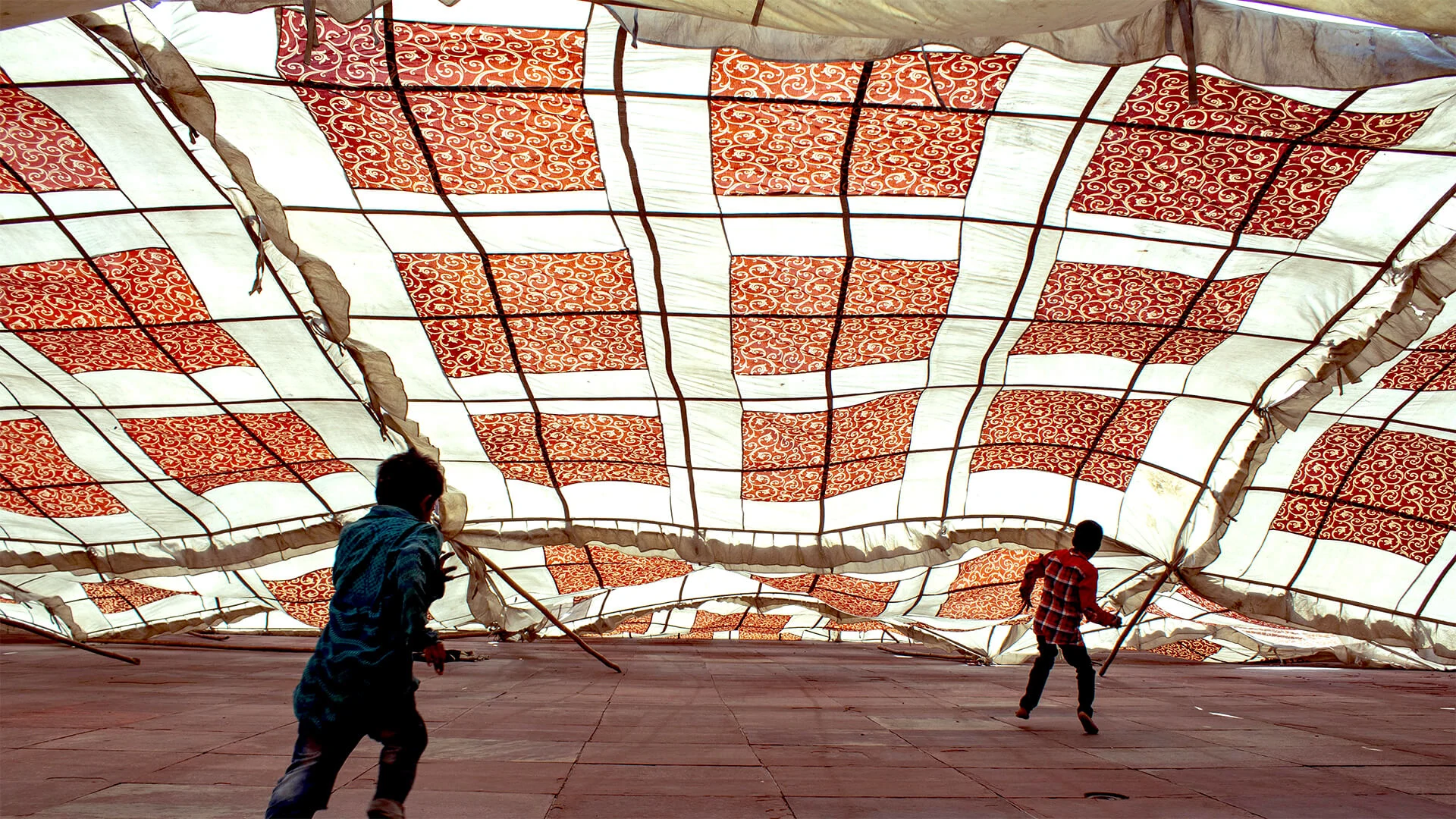The ICC team attended Climate Week NYC for the second year in a row, organised by Climate Group and held from September 22–29, 2024. What went well? What didn’t? Why does it matter? Keen to understand more, we asked the team a few questions (comprising Shloka Nath, CEO; Keya Madhvani Singh, Director of Operations; and Rishika Das Roy, Lead — Sectors Catalyst).
Q1: It’s been a difficult year for India (and the world), climate crisis-wise. We need some good news first. What were the highlights of being at Climate Week this year? What made you feel good or hopeful about being there?
The India voice is growing stronger: Last year, there was a complete lack of India-focused voices at Climate Week. This year felt very different. The number of events at Climate Week nearly doubled from last year, going from around 400 to over 900, and many of these were geared around climate challenges in the Global South and South Asia. For example, our friends at Asia Philanthropy Circle and AVPN hosted incredible events about funding in the region, which we attended. This highlighted a clear need for collaboration between the Global North and Global South to advance on goals in vulnerable countries.
Need for urgency and speed clear: Sometimes, at conferences, people focus so much on deliberating and following processes, that the urgency of the crisis gets less weight than it should. This year, everyone was talking about urgency and the need for speed, and accelerated, transformative action. There was also huge recognition of resilience as a big climate goal, across themes like food and land-use, agriculture-energy nexus, just transition, etc. It was heartening to see that the timelines across rooms and priorities were also quite condensed.
Intention to align prominent: We really liked that people were talking about aligning with each other a lot. There was a lot of focus on sharing lessons across geographies, looking for alignment by exploring powerful/bold collaborations, building ecosystems, etc.
This was not limited to any single context, and people were discussing future travel and meeting arrangements to carry forward the intention to align beyond Climate Week.
Rising attention towards sub-national action: People were more curious to learn about regional needs and action this year and understand the conversation at sub-national levels across the Global South. This year’s Breakfast Briefing organised by the ICC and supported by the Rockefeller Foundation was more nuanced compared to last year’s event; our specific focus on sub-national action, over last year’s big picture perspective on broad trends in climate philanthropy, helped funders walk away with clear action pathways. We know the way forward is more focused topics, to allow nuanced takeaways for actors.
Q2: What do you think was missing or what needed more attention?
Conversations need to be more intersectional: We had the opportunity to represent the ICC in multiple rooms and spaces, spanning distributed renewable energy, Just Transition, urban resilience, food systems, etc. We noticed a clear absence of cross-cutting language; each issue or priority seemed self-contained in audience and problem framing. This cannot work with complex problems like climate change, which is, at its core, a systems change issue. For example, land-use experts needed to be in land-use, food, energy, JT rooms, but there was a stark contrast in the people representing different spaces. Diverse perspectives on each issue are always immensely helpful, and this can encourage civil society across the Global South to work together to create more nuanced solutions.

ICC’s Breakfast Briefing at Climate Week NYC 2024, supported by the Rockefeller Foundation.
Q3: Having attended Climate Week for two successive years, why do you think Indian actors like the ICC need to show up?
Platforming Indian philanthropy: Having taken a contingent of leading philanthropists to COP28 in Dubai, we understand the value of getting Indian funders to appear on the global stage. They get to exchange learnings with international funders and civil society, across generations and markets, by sharing details about the breadth of investments they’re making; tell their stories to new audiences; and explore potential for collaboration with next-generation philanthropists who share similar ambition for transformative change. The presence of multiple, experienced Indian actors at Climate Week adds nuance and depth to representation, diversity, and inclusion goals on such platforms, and ensures India’s narrative is multifaceted.
Bring a nuanced Indian perspective: One of the biggest things the ICC can do for India and for Climate Week NYC is to bring nuanced, up-to-date perspectives on India’s climate ecosystem and where it is headed, as well as learnings from our partners, to a global funding ecosystem. For example, this could impact market signalling for key priority areas like adaptation or the food-energy nexus for funders and civil society interested in India’s future. India is already doing this in many ways, but because the ICC is sector-agnostic, we can bring these learnings into multiple spaces.
This also helps us identify opportunities that align domestic and global momentum. For example, although India’s food systems conversation is quite different from that in many developed countries, there are learnings from the Global North that we can integrate — especially on systems change and how to help diverse actors be part of the movement.
Q4: Final question — what were the biggest ‘non-climate’ topics that came up in conversation at Climate Week?
Well, everyone was talking about the US elections, of course, as well as the crises in Sudan, Gaza, and Yemen, food and fuel prices, and how these factors are impacting the climate crisis. There was also a lot of focus on geopolitical factors, such as how the G20/COP processes and alliances are panning out among Global South countries; this included the Brazil elections, China’s participation at COP29, which countries and actors are going to COP29, etc. As the world questions multilateralism’s efficacy, people also discussed what the new ‘climate’ multilateralism might look like and how that’ll impact climate progress and urgency.

Subscribe to our Newsletter
Join ICC's monthly newsletter and read more about uplifting climate narratives, innovative solutions, and other updates.




